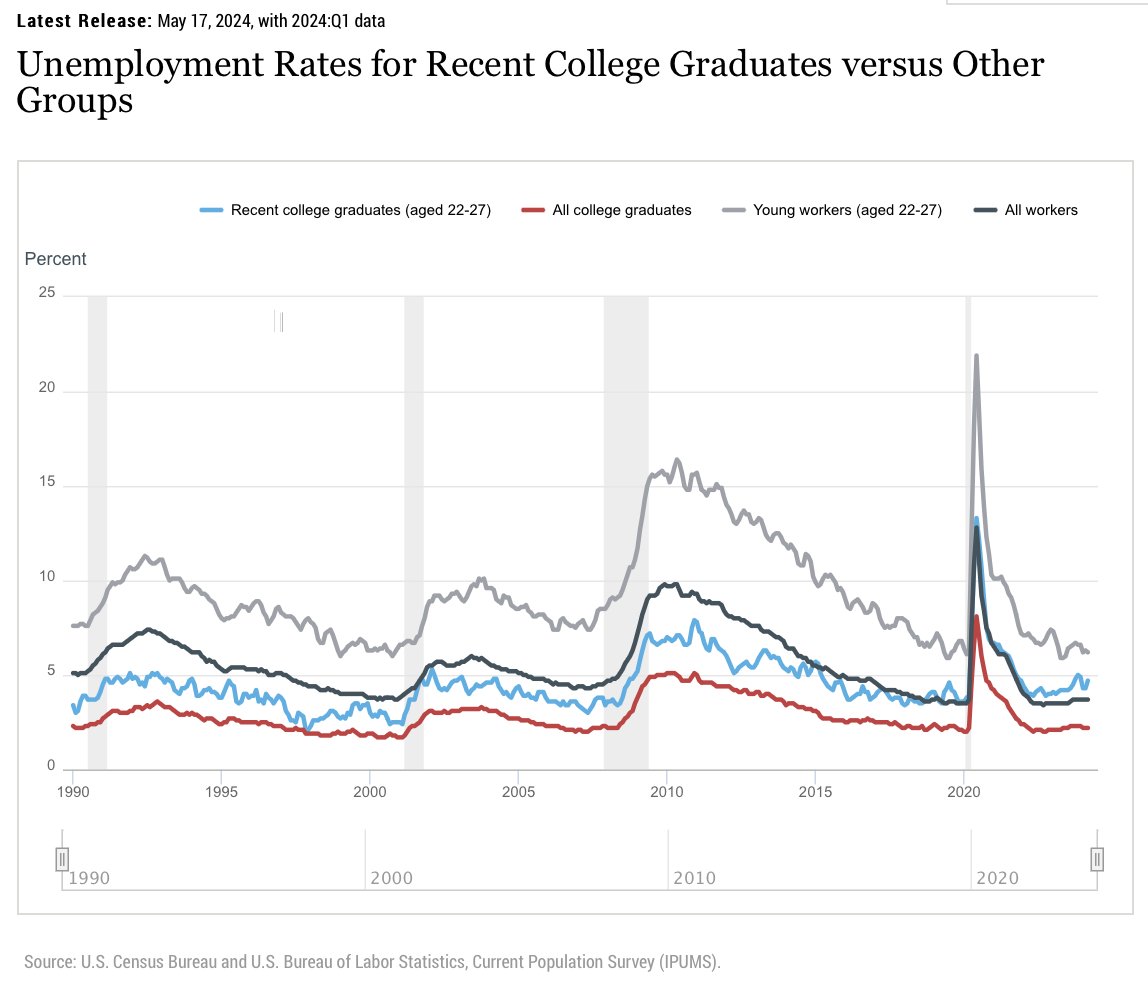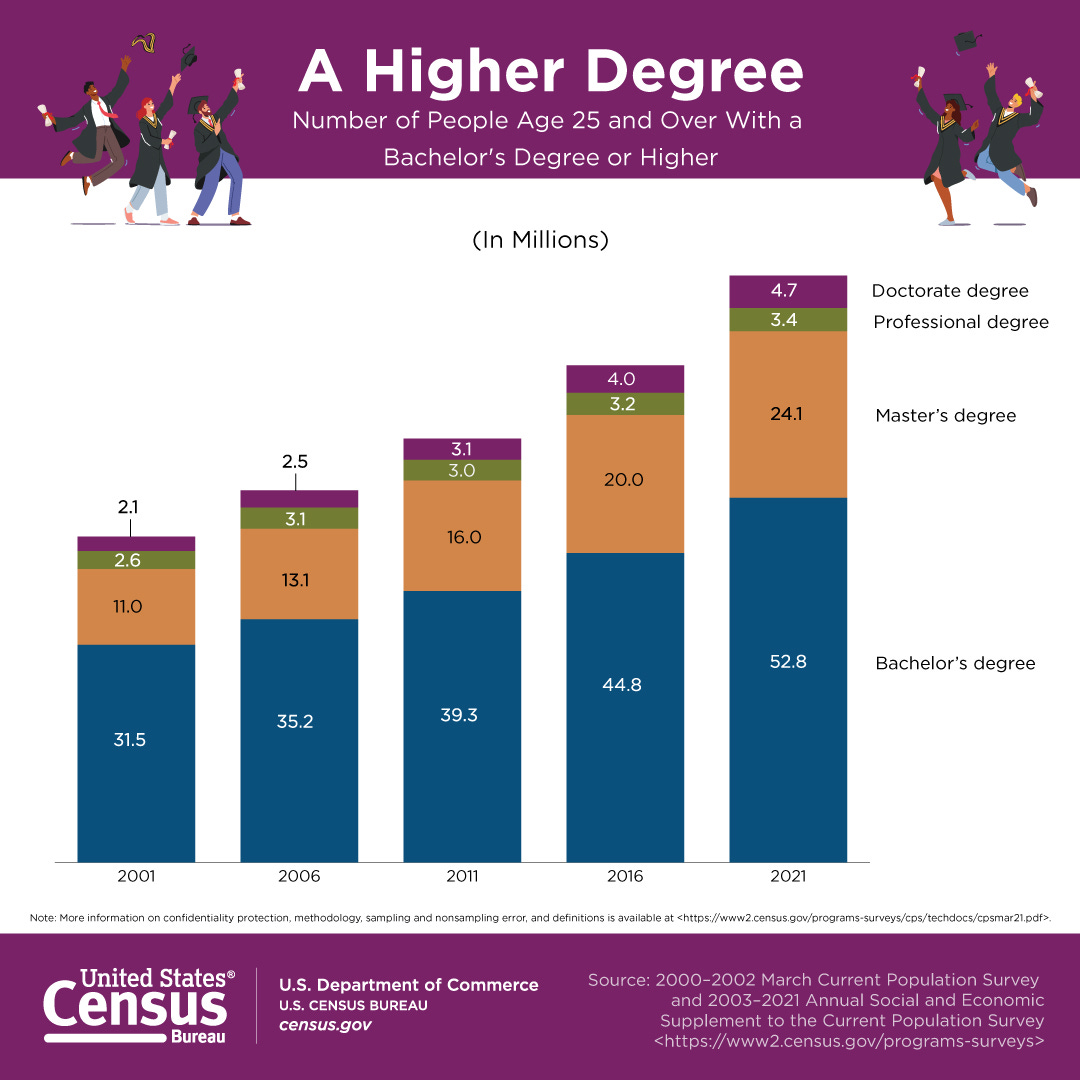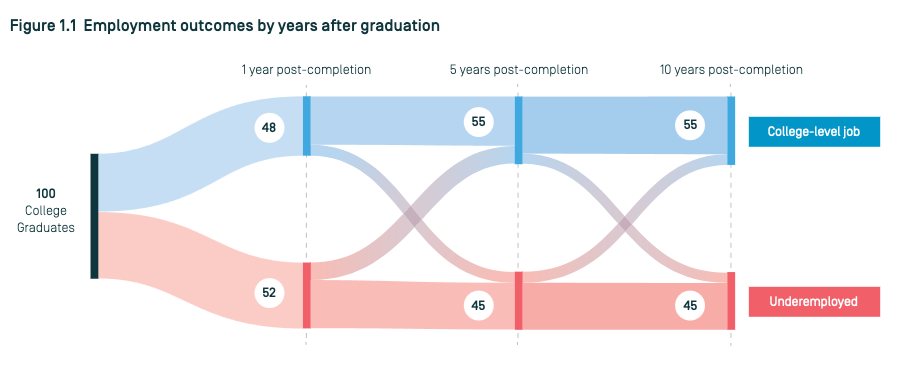The Entry-Level Job Market is Insane.
And yes, it is worse than the Great Recession and the dot-com crash due to the other multiple crises this generation has to face.
There was a time once when people on the other side of 30 would often wish that they could go back and relive their twenties. That time is now past. Instead, the very thought can cause the very same people to shudder and thank the stars that they have crossed the line.
Not only are these young adults inheriting a polluted and toxic environment, but they are also being made to burden the other fallouts of late-stage capitalism. At no other point in history have well-educated college graduates entered such a hostile job market. Add in inflation, sky-high rents forced by an unyielding housing market, isolation brought upon by social media, and you can get a glimpse into the horrors faced by the 20 somethings.
“The cost of living is so high right now and salaries seem so low. I have so much I want to save for, but I’m looking at starting salaries of $40,000 a year, which means half my salary would go to my rent. What about health insurance, car insurance, utilities, student loans? Everything seems so expensive and working eight hours a day isn’t enough.” - Class of 2024 student.
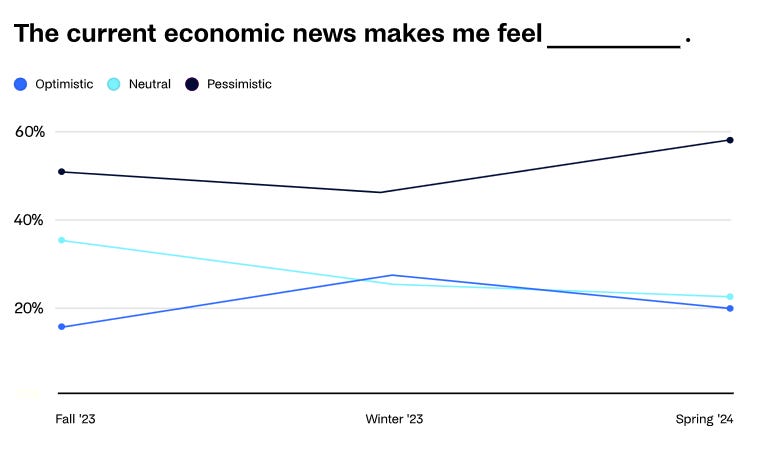
The Employment Story
Last week, while congratulating a recent Master’s student on her graduation, I lightly inquired about the number of students who managed to land jobs at the time of graduation. “Um, around 10 people maybe?“
“Out of how many?“
“Two hundred.“
It was shocking to hear that only 10 out of 200 Masters’ students who had specialized in Data Science found employment, i.e. a mere 5% of the class size. And this is for the degree that the U.S. Department of Labor claims to have a much faster than average job outlook.
And unfortunately, this anecdote is no longer the exception but the rule.
College grads find themselves faced with employers who coolly demand a minimum 5+ years of experience for entry level jobs. Even the ones who specialize in AI and Data Science are being asked to cross increasingly deep rivers. The situation is so dire that the only way to stand out is by knowing the right people and accessing the privilege needed to pull the right strings.
In this market, recent college grads are finding it harder to land jobs than even those with less than a Bachelor's degree. At no time before has this ever happened, not even during the 2008 financial crisis.
The people in their twenties everywhere are struggling to find employment, but in no industry more so than in tech. The artificially bloated tech job market is now filled with 2024 grads, 2023 grads, laid-off employees, the women discarded by tech over the years, and even some retirees who need to get back into the game. Indeed, there are millions of white collar workers walking on tightropes, a breadth away from falling headlong into debt.
In short, there are a few key factors hounding the entry-level job seekers: one, millions more students are graduating with a degree in computer science or related fields; two, intense competition with experienced laid-off techies; three, an unwelcoming industry that plans to decrease entry-level hiring by 5.8% and reduce hiring overall; and four, consolidation of smaller companies by Big Tech and the dried-up state of start-up funding due to consistently high interest rates.
Companies have realized that with such a wide pool to suck dry, they need not spend time on training and new-hire management. The power balance has shifted so terribly askew that it has become impossible to even get an internship. A current master’s student at GW told me that she could count on one hand how many students in her year landed an internship. Her total class size is over 1,200.
Data from Indeed and LinkedIn back these stories, showing a severe dip in the number of job openings in software. On the bright side, it appears that students specializing in core engineering services like Civil and Electrical Engineering may experience an easier job search given the United States’ penchant for infrastructure development and the recent CHIPS act of 2022.
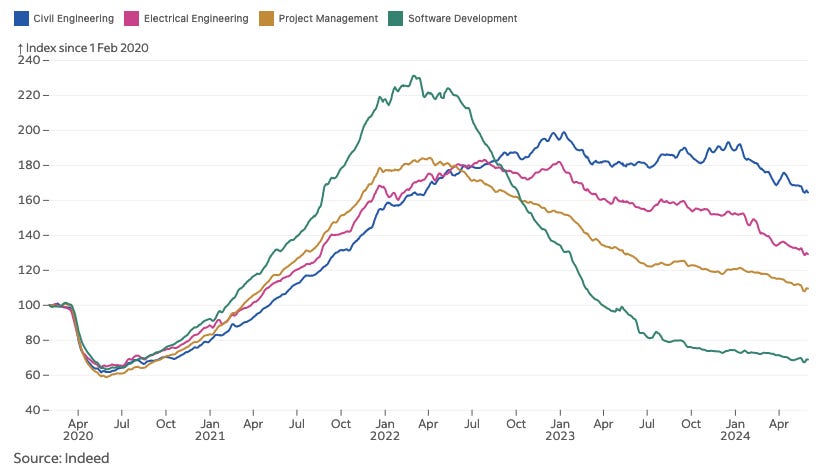
International students are doubly hit with the need to secure jobs within 90 days to maintain their student visa status, and often, the need to payback humongous student loans taken out in currencies that regularly slide against the dollar.
The loudly-touted low unemployment rate of 3.9% masks the numbers of international white collar workers who live and pay taxes in the US but are consistently ignored in employment-based census surveys. It also hides the scores of American workers who are reluctant to sign up for unemployment. But despite all this, even Business Insider has acknowledged that the white-collar recession is well under way.
Meanwhile, by pointing to the high number of job openings officials are pointedly looking away from the fact that most of these openings are in low-paid and highly exploited blue collar sectors. To make ends meet, college graduates are being pushed into taking up roles of information and record clerks, retail sales workers, food and beverage servers, or even heavy material movers, resulting in massive levels of underemployment.
The Burning Glass report of Feb 2024, aptly titled Talent Disrupted, goes over the crisis of underemployment in detail. Overall, 52% of graduates are underemployed a year after graduation. The study states that it is tough to break out of underemployment, as even a decade after graduation 45% of graduates remain underemployed. The findings deplore that STEM is no longer a silver bullet and that socio-economic backgrounds may play a bigger role in helping graduates find the right job. The 20-year olds that suffer underemployment routinely face a financial backslide as only 25% of them end up earning more than someone without a college education.
Given the current tragic situation, it is heartening to see the courage displayed by these young grads. They keep a keen eye on the economy, they scout potential employers and choose ones with actions they can abide, they silently prepare themselves for toxic bosses and the inevitable burnout, and they are not afraid to stand up for human rights even though they may be blacklisted by potential employers.
By blaming the students for their supposed covid-caused social anxieties, and social media promoted laziness, employers are missing out on real talent and shifting responsibility upon the victims. By not seeing their immense potential and their fortitude built upon facing crisis after crisis, our society is at risk of failing these young stars. And by seeking perfection and custom built robotic workers, we may all suffer from lack of innovation and diversity for years to come.
Moreover, many of the top schools in the country have either failed to publish career outcomes for 2023 and 2024 or they have used words like "X% of Job Seekers" instead of “X% of the Class of 2023” in their shortened reports.
Small but telling tactics.
Note: Thanks for reading this article! I did miss one post last month but the best part of working for yourself is indeed the ability to forgive such lapses! I have been working on getting my small business off the ground, and to my readers in India if you are ever in need of artistically designed stationery or custom gifting do humble me and check out the Artful Stationery Co. which I have been setting up along with my best friend.
I have also decided to add in the option to get substituted for my Substack. I devote considerable amount of time in researching and writing this newsletter and I am thrilled and grateful for the the support I have received so far. I hope to continue shedding light on the tech industry and I would love it if you are willing to become a patron and support my work. My posts will continue being available to all. I am hoping that those who can afford to patronize me can help subsidize those who cannot.
PS: Substack forces me to choose higher rates that may be out of reach for my Indian readers. Instead, I give you my paypal link, so feel to contribute an amount that pleases you! (Let’s see how long Substack allows this.)




